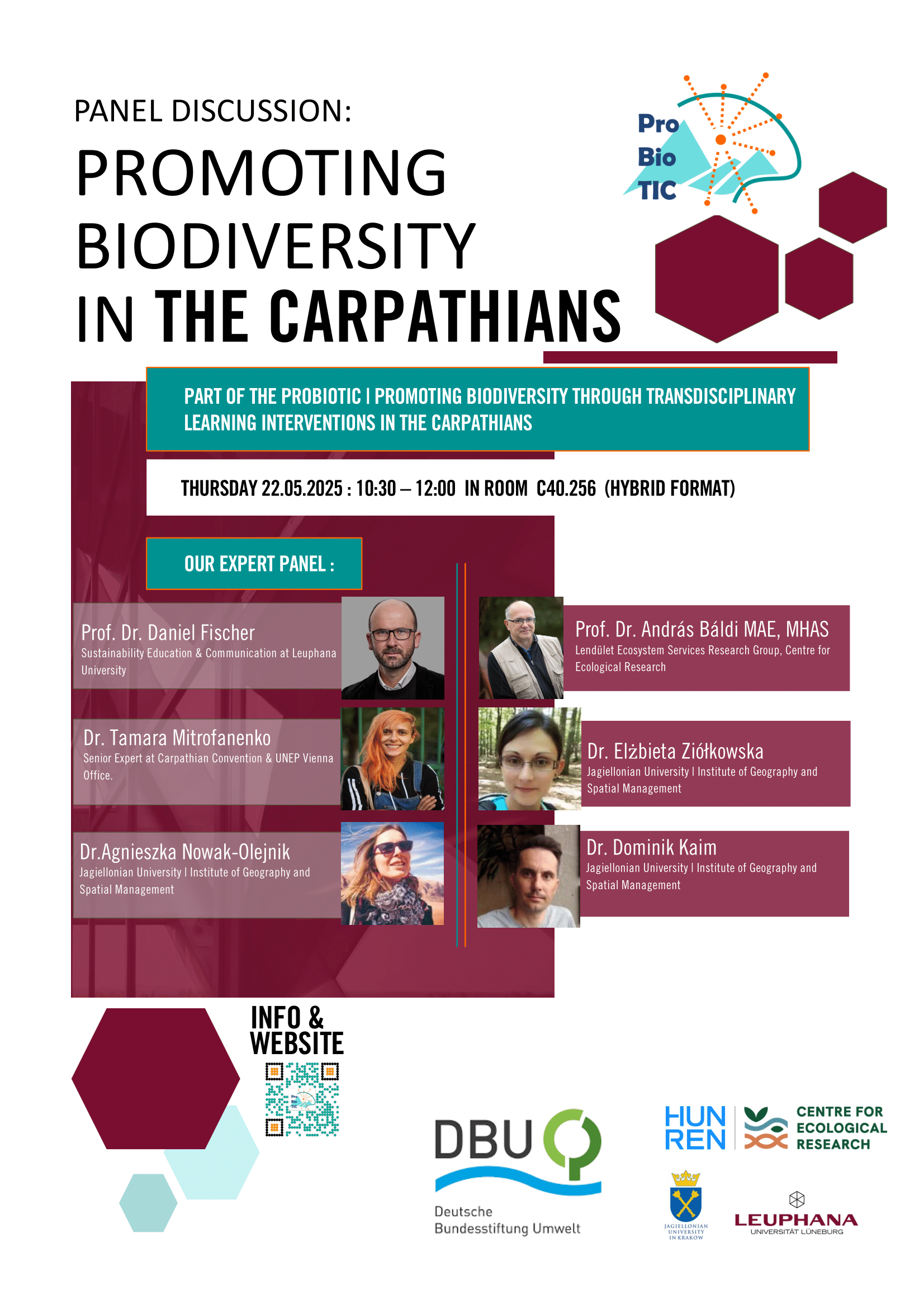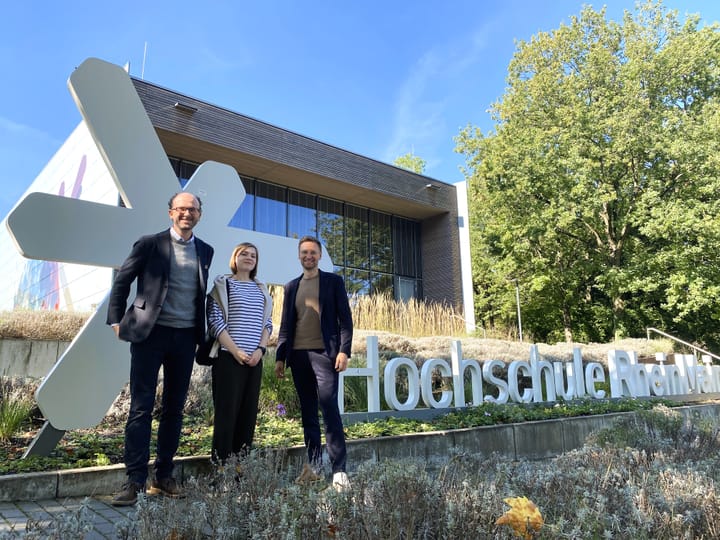Panel discussion on Promoting Biodiversity in the Carpathians

On May 22, 2025, as part of the ProBioTIC project (Promoting Biodiversity through Transdisciplinary Learning Interventions in the Carpathians), students from Jagiellonian University (Kraków, Poland) and Leuphana University (Lüneburg, Germany) came together in a hybrid panel discussion to explore challenges and opportunities of one of Europe’s most biologically rich and ecologically significant mountain ranges, the Carpathians.
The event brought together six experts from diverse academic and policy backgrounds, offering students a unique opportunity to discuss the conservation, protection, and education for biodiversity in the Carpathians.

Panel of Experts
The panel consisted of
- Prof. Dr. Daniel Fischer, Professor of Sustainability Education & Communication at Leuphana University, Germany (Expertise in learning interventions and ESD)
- Dr. Tamara Mitrofanenko, Senior Expert at Carpathian Convention and United Nations Environment Program Vienna Office, Austria (Expertise in Carpathian Convention and Policy)
- Prof. Dr. András Báldi, Leader of Lendület Ecosystem Services Research Group at the Centre for Ecological Research, Hungary (Expertise in biodiversity and ecosystem services in agricultural areas)
- Dr. Agnieszka Nowak-Olejnik, Postdoctoral Researcher at Institute of Geography and Spatial Management, Jagiellonian University, Poland (Expertise in ecosystem services and land use change)
- Dr. Elżbieta Ziółkowska, Postdoctoral Researcher at Institute of Geography and Spatial Management, Jagiellonian University, Poland (Expertise in Biogeography and Landscape Ecology)
- Dr. Dominik Kaim, Postdoctoral Researcher at Institute of Geography and Spatial Management, Jagiellonian University, Poland (Expertise in spatial analysis and land use planning)
- with Senan Gardiner acting as moderator.
The panel addressed complex challenges facing the Carpathian region and explored how transdisciplinary approaches can enhance both conservation outcomes and public understanding. In particular, some of the questions asked were the most threatened biodiversity hotspots in the Carpathians, the impacts of tourism on land use and local communities, and which effects traditional and modern agricultural practices have on biodiversity in the region. Additional questions addressed challenges and opportunities of collaborations across different disciplines, languages, cultures, and governance systems; citizen science approaches; and the synergies between biodiversity conservation and other Sustainable Development Goals.
A Shared Learning Experience
The panel discussion not only provided students with valuable insights into biodiversity science and policy developments in the region but also underscored the importance of transdisciplinary and cross-sectoral dialogue in achieving conservation goals. These learnings will be particularly valuable as students begin developing their own interdisciplinary learning interventions designed to translate complex biodiversity challenges into locally grounded, educational actions that could be implemented in the Carpathian region.




